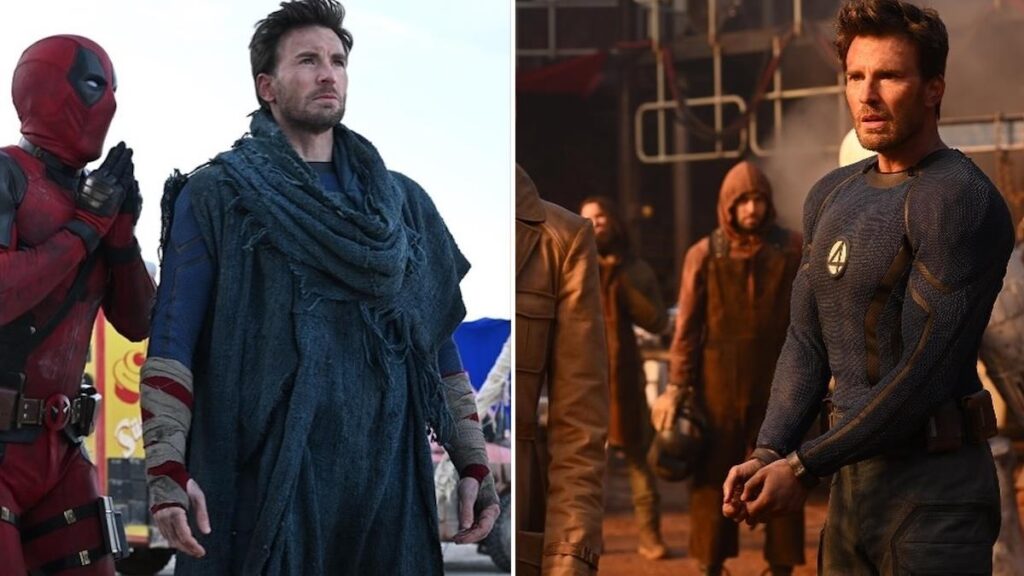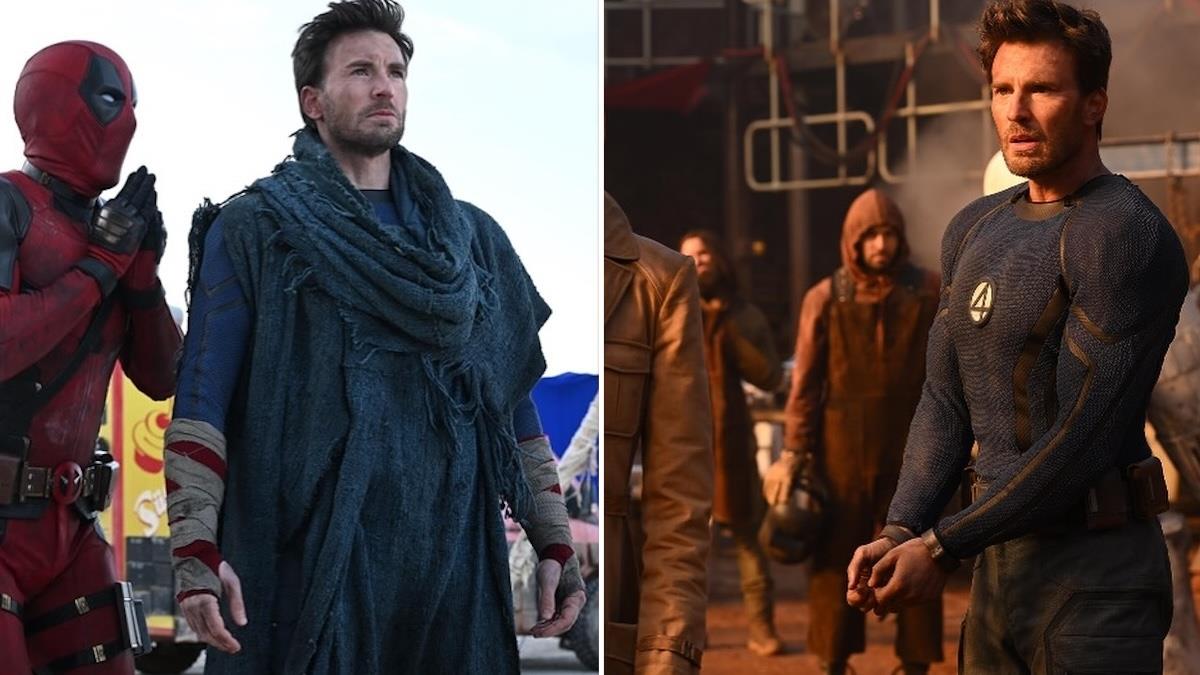
Deadpool, Johnny Storm, and Death: Exploring the Complexities of Mortality in Marvel Comics
The concepts of death and mortality are recurring themes in comic books, often explored through the lens of superhero narratives. Characters like Deadpool and Johnny Storm, while seemingly disparate, offer unique perspectives on these themes. Deadpool’s quasi-immortality and Johnny Storm’s (the Human Torch) temporary brushes with death provide fertile ground for examining how Marvel Comics grapples with the finality (or lack thereof) of existence. This article delves into the significance of Deadpool, Johnny Storm, and the overarching concept of death within the Marvel Universe, focusing on specific storylines and their impact on the characters and the broader narrative.
The Unkillable Merc: Deadpool’s Dance with Death
Deadpool, created by Fabian Nicieza and Rob Liefeld, is perhaps best known for his regenerative healing factor, a byproduct of the Weapon X program. This ability grants him near-immortality, making him incredibly difficult, if not impossible, to kill. While seemingly a blessing, this gift has also become a curse, profoundly shaping his character and his relationship with death.
Deadpool’s healing factor stems from Wolverine’s DNA, but it’s been amplified to an absurd degree. He can regenerate from virtually any injury, including complete dismemberment. This has led to numerous comical and often gruesome scenarios, where Deadpool is seen piecing himself back together after being blown apart, crushed, or subjected to other forms of extreme violence. However, beneath the humor lies a deeper exploration of what it means to live (or exist) without the fear of death.
Deadpool’s longing for death is a recurring motif. He often expresses a desire to find peace, to escape the constant cycle of violence and regeneration. This yearning is often intertwined with his mental instability and feelings of isolation. His immortality prevents him from finding closure or experiencing the natural progression of life, leading to a profound sense of emptiness. He seeks oblivion, a release from his endless existence. This desire is often played for comedic effect, but it also reveals a vulnerability beneath his wisecracking exterior.
One notable storyline that explores Deadpool’s relationship with death is his interactions with Thanos. In some versions, Thanos curses Deadpool with immortality, preventing him from being with Death (a personified entity in the Marvel Universe), whom Deadpool is infatuated with. This adds another layer of complexity to his character, highlighting his romanticized view of death and his frustration with his own inability to attain it. This unrequited love fuels much of his erratic behavior and his constant search for a way to break the curse. [See also: Thanos and Deadpool: A Cosmic Connection]
The Fiery Fate of Johnny Storm: A Human Torch Extinguished?
In stark contrast to Deadpool’s immortality, Johnny Storm, the Human Torch, represents the inherent vulnerability of even the most powerful superheroes. While he possesses incredible powers, including the ability to ignite his body and fly, he is still susceptible to injury and death.
The “Three” storyline in *Fantastic Four* #587 marked a significant moment in the character’s history. In this arc, Johnny Storm seemingly sacrifices himself to protect his family and prevent the Negative Zone from spilling into the Earth. This event had a profound impact on the remaining members of the Fantastic Four, particularly Reed Richards (Mr. Fantastic), Sue Storm (Invisible Woman), and Ben Grimm (The Thing). The loss of Johnny Storm served as a powerful reminder of the stakes involved in superheroism and the potential for even the most beloved characters to face permanent consequences.
The aftermath of Johnny Storm’s death was explored in subsequent issues, showcasing the grief and emotional turmoil experienced by his teammates. The Fantastic Four disbanded, unable to continue without their fiery member. However, as is often the case in comic books, death is not always a permanent state. Eventually, Johnny Storm was revealed to be alive, having been transported to the Negative Zone rather than killed. This resurrection, while welcomed by fans, also raises questions about the weight and impact of death in superhero narratives. Does the frequent reversal of death diminish its significance, or does it serve as a testament to the enduring power of hope and resilience?
Johnny Storm’s temporary death and subsequent return highlight the cyclical nature of storytelling in comics. While his sacrifice was initially portrayed as a definitive moment, it ultimately served as a plot device to explore themes of loss and redemption. His resurrection, while perhaps predictable, allowed for the re-establishment of the classic Fantastic Four dynamic and the continuation of their adventures. [See also: The Resurrection of the Human Torch: A Comic Book Tradition]
Death as a Narrative Tool in Marvel Comics
The use of death as a narrative tool in Marvel Comics is complex and multifaceted. On one hand, it can serve to raise the stakes, create emotional resonance, and explore the consequences of violence. On the other hand, the frequent resurrection of characters can diminish the impact of death, rendering it a temporary inconvenience rather than a permanent loss.
Deadpool’s quasi-immortality and Johnny Storm’s temporary death represent two extremes of this spectrum. Deadpool’s inability to die allows for exploration of themes of isolation, mental instability, and the search for meaning in an endless existence. Johnny Storm’s death and resurrection, while initially impactful, ultimately serve as a plot device to explore themes of loss, grief, and the enduring power of family. The character Deadpool constantly breaks the fourth wall, and is aware of the fact that he is a comic book character, blurring the lines between reality and fiction.
The impact of death in comics often depends on the context and the specific characters involved. The death of a beloved character like Uncle Ben in Spider-Man’s origin story carries significant weight because it serves as a catalyst for Peter Parker’s transformation into a responsible hero. Similarly, the death of Gwen Stacy in *The Amazing Spider-Man* #121 remains a controversial and impactful moment in comic book history, demonstrating the potential for tragic consequences in superhero narratives.
The Enduring Appeal of Mortality in Superhero Stories
Despite the frequent resurrection of characters, the themes of death and mortality continue to resonate with readers. These themes explore fundamental questions about the nature of existence, the meaning of life, and the inevitability of loss. Superhero stories, even those featuring characters with extraordinary powers, often grapple with these universal concerns, making them relatable and engaging for a wide audience. The constant struggle against evil often necessitates sacrifice, and the willingness to face death is a defining characteristic of many heroes.
Deadpool’s morbid humor and Johnny Storm’s fiery heroism both contribute to the ongoing exploration of mortality in Marvel Comics. Deadpool’s longing for death highlights the potential burdens of immortality, while Johnny Storm’s sacrifice underscores the importance of courage and selflessness in the face of danger. The complex relationship between these characters and the concept of death ensures that these themes will continue to be explored in future storylines.
In conclusion, the contrasting experiences of Deadpool and Johnny Storm provide valuable insights into the multifaceted nature of death in Marvel Comics. While Deadpool is cursed with near-immortality, yearning for an end he cannot attain, Johnny Storm’s brush with death and subsequent resurrection highlight the cyclical nature of superhero storytelling and the enduring power of hope. The exploration of mortality, in all its forms, remains a crucial element of the Marvel Universe, ensuring that these stories continue to resonate with readers for years to come. The character Deadpool offers a unique commentary on the superhero genre, often pointing out the absurdity and tropes inherent in comic book narratives. The temporary death of Johnny Storm served as a significant event within the Fantastic Four storyline, even if it was eventually reversed.

